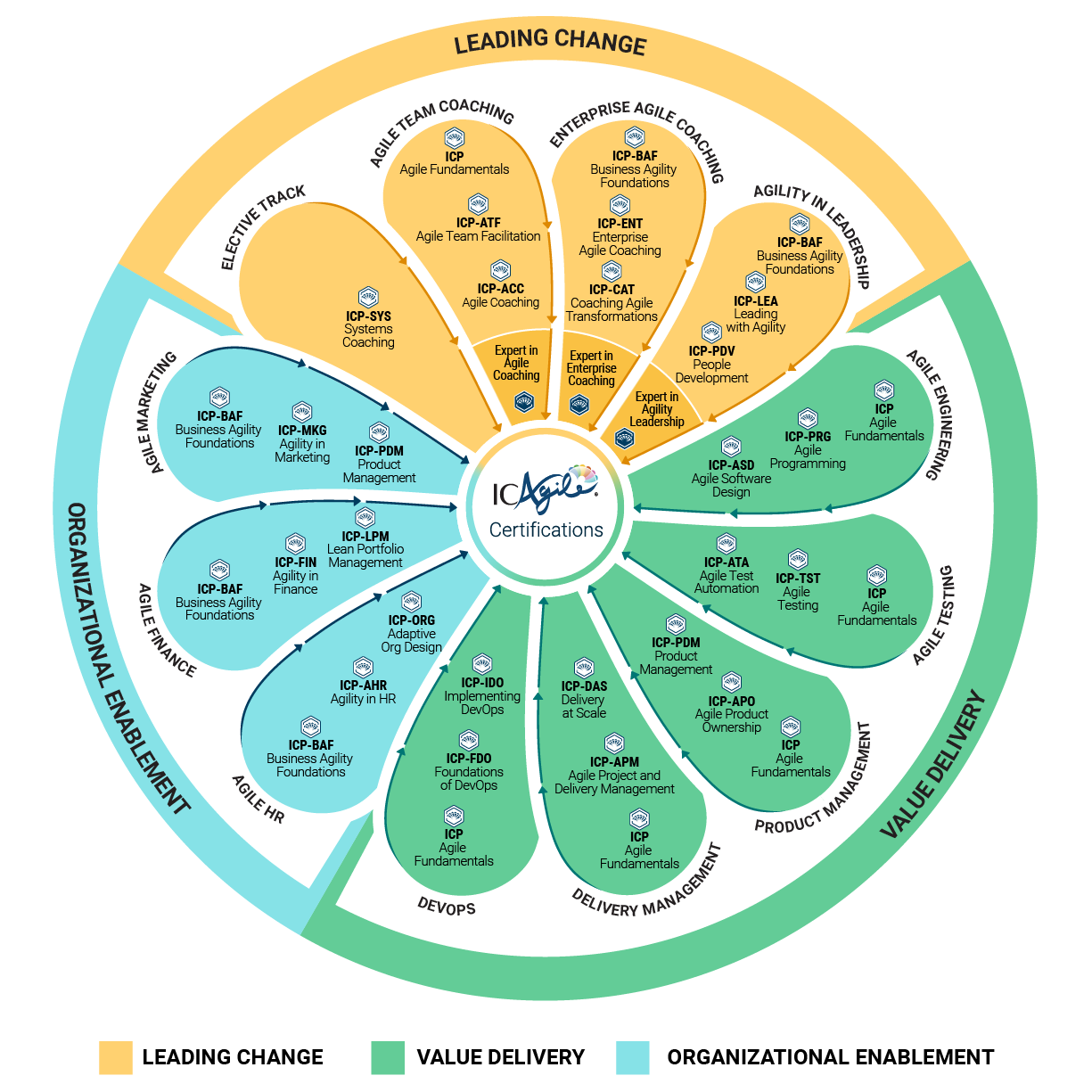The ICAgile Leading with Agility course supports leaders and aspiring leaders to become efficient in leading organisations and teams through today’s complexity and the uncertainty of the future.
This industry recognised credential explores the key aspects of organisational agility capability and agile leadership while verifying a grasp of personal agility, relationship agility and leading change.
Over the two-day course, learners will examine how their leadership style, personal growth and development, can catalyse change, leading to better business strategies, relationships and lasting success.
Attending this course will provide learners with the knowledge and skills necessary to lead their organisation through improved emotional intelligence and self-awareness. During the course learners will explore how leaders create high-trust environments to enable high-performing teams to emerge.
Upon completion of this course, you’ll earn the ICAgile Certified Professional in Leading with Agility (ICP-LEA) certificate.
Target Audience
This course is valuable to leaders and aspiring leaders at all levels. It is designed for professionals seeking to learn about the paradigm shifts necessary to lead in adaptive environments and to develop relevant leadership capabilities.



















